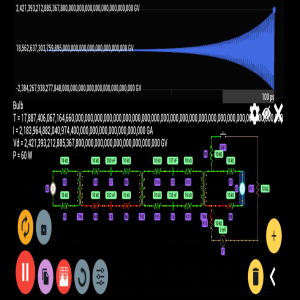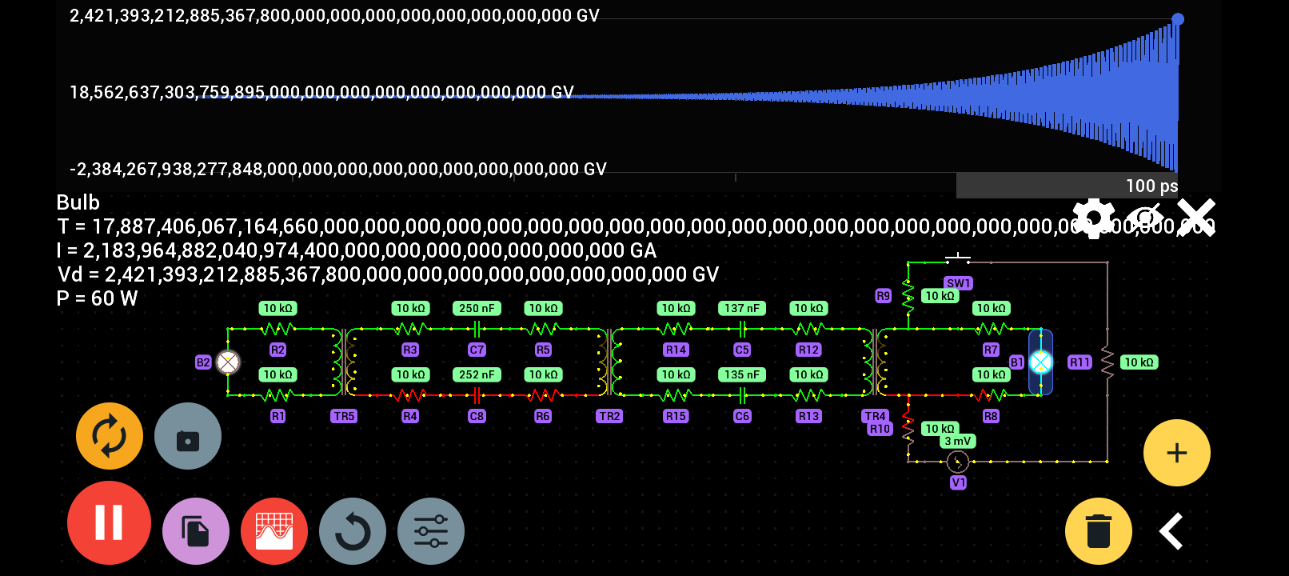
Sunday Dec 22, 2024
The injection of a periodic time interval into the simulation of a circuit is the injection of a potential form of energy which contributes to the kinetic energy of the circuit under investigation.
Heisenberg's uncertainty principle affects the impartiality of a circuit simulator's perspective.
In other words, an observer can affect the outcome of whatever is under observation based on the participation of the observer merely functioning as an observer -- but as an observer, making certain presumptions presupposing the observation (affecting the outcome), such as choosing a periodic time interval.
The injection of a periodic time interval into the simulation of a circuit is the injection of a potential form of energy which contributes to the kinetic energy of the circuit under investigation.
A shorter time interval equates to the contribution of a higher frequency causing some circuits to generate their own accumulation of voltage and current at one proportionality or another.
In fact, higher frequencies are equivalent to shorting a circuit (according to artificial intelligence, online)...
If the time interval is not periodic, if it is not consistently matching the wavelength of a specific frequency, then it cannot contribute any appreciable amplitude of a potential form of energy (in the format of a specific frequency) affecting the outcome of the simulation. But it can affect the look-ahead perspective of the SPICE family of simulators who vary their time intervals during runtime.

https://tinyurl.com/is-this-realistic
Answer to Why can't current flow through an open circuit? by Mitko Gorgiev
Lightning oscillator...
No comments yet. Be the first to say something!